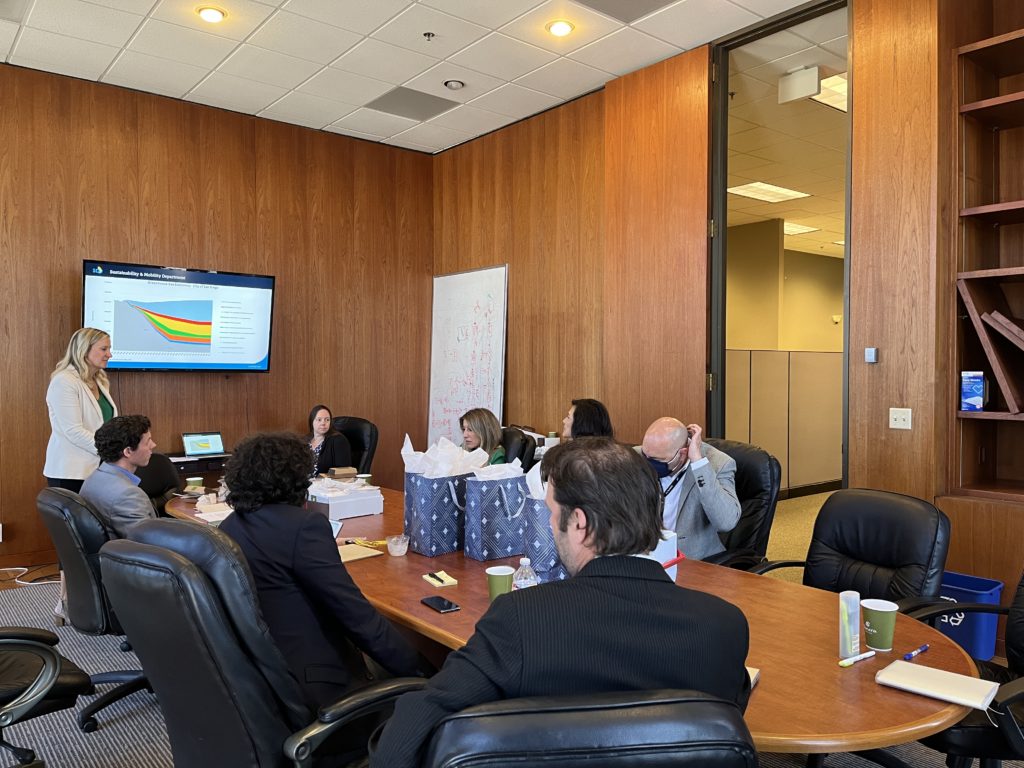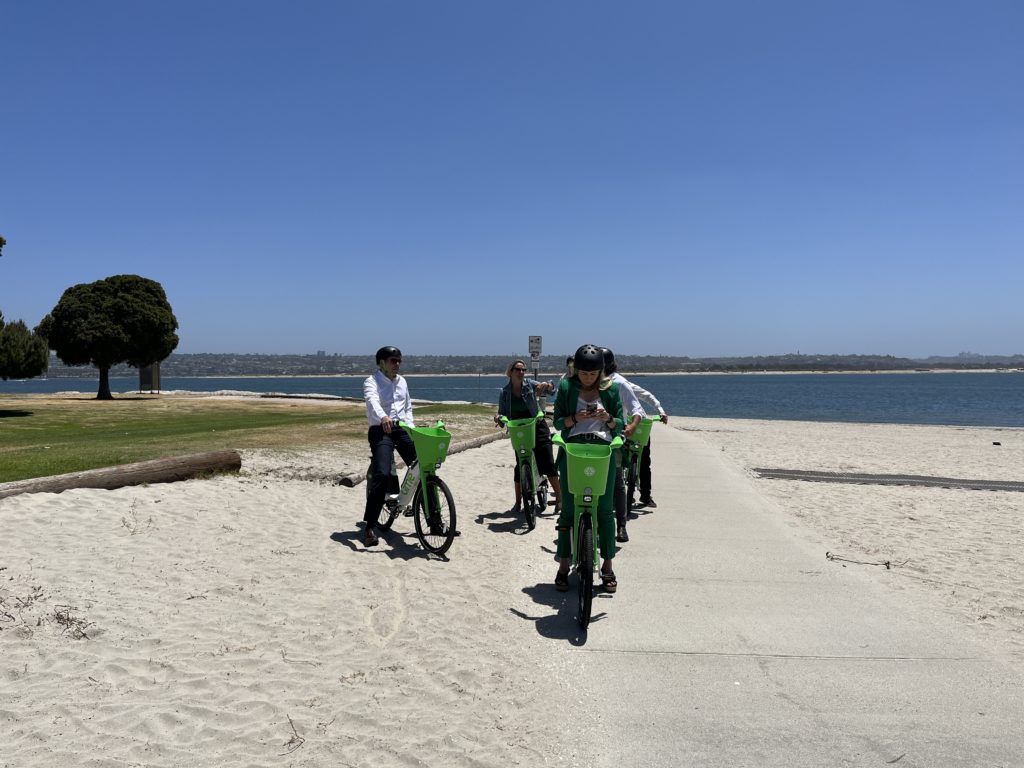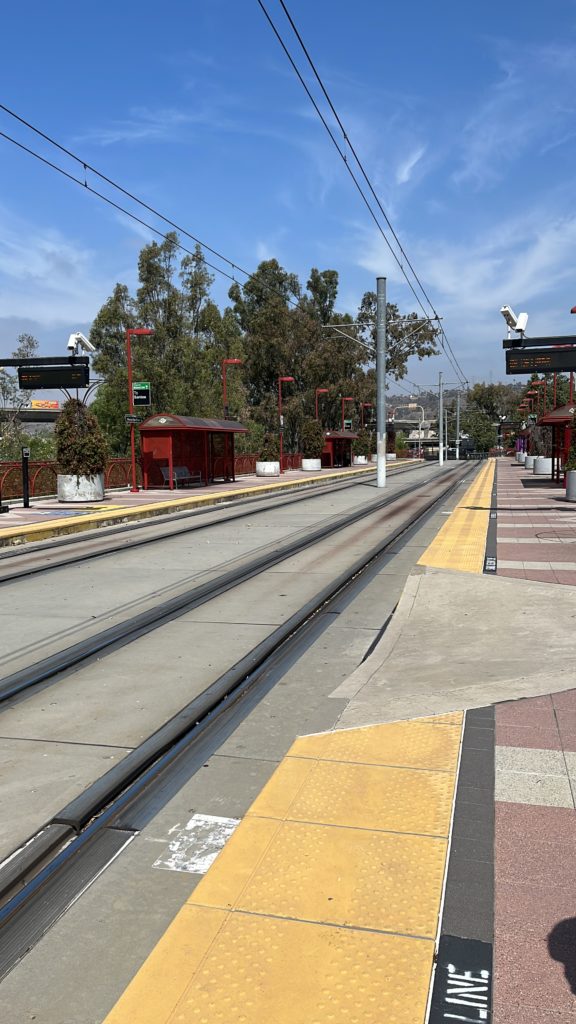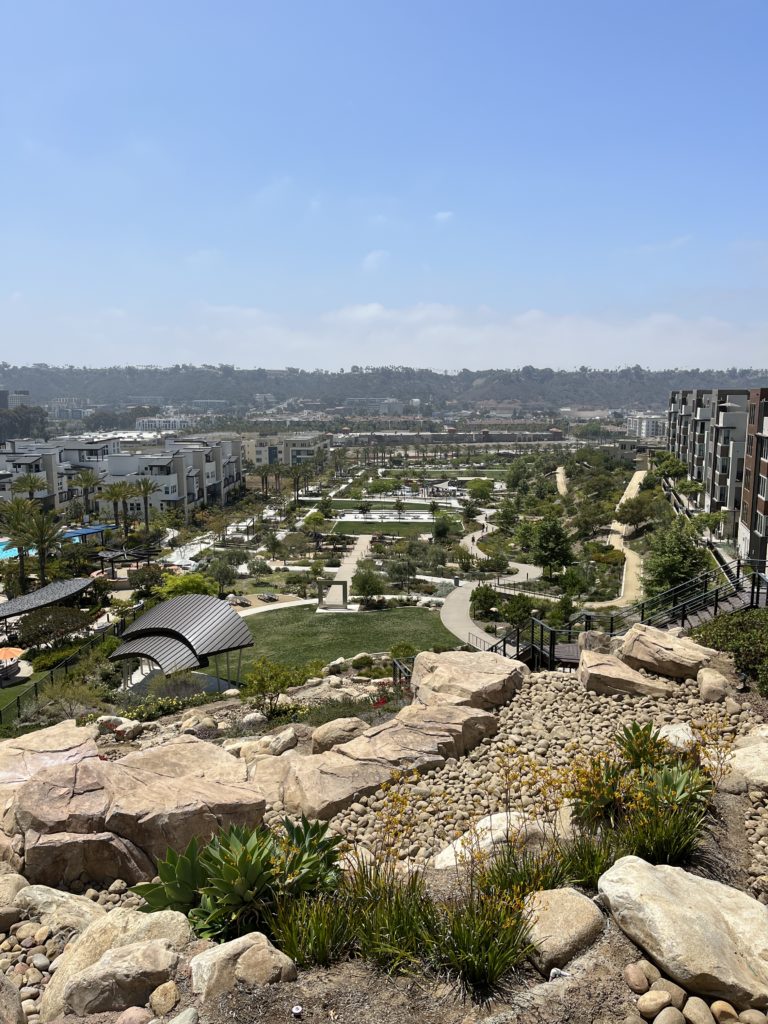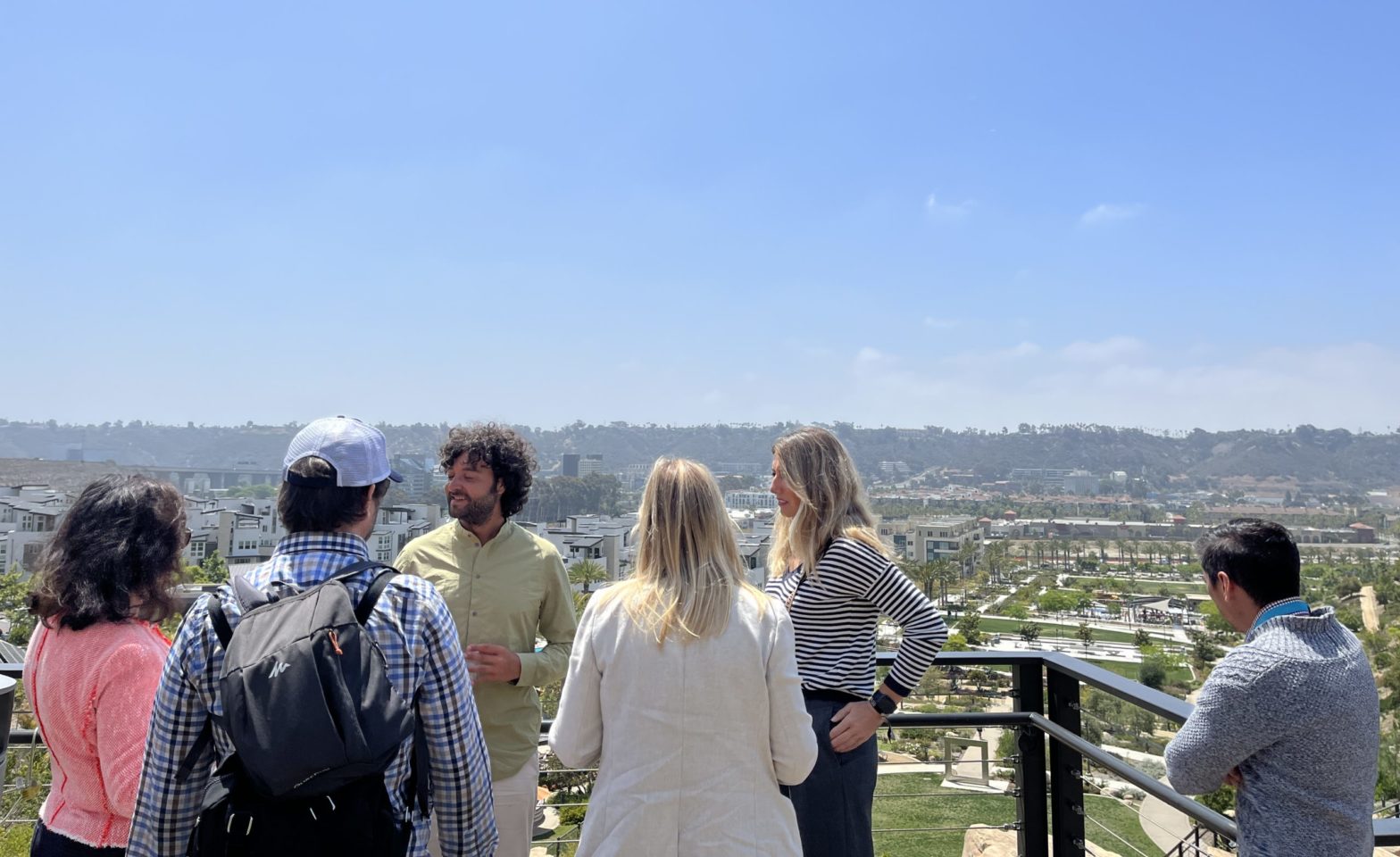31 May – 2 June 2022
Three delegates from Madrid, Spain, traveled to San Diego, USA, to complete their first study visit to learn best practices and share challenges on:
- Sustainable Urban Mobility and Transport
- Nature-Based Solutions
The morning of Tuesday, May 31st started with a welcome from the San Diego delegates, who provided a general overview of the city’s geography, demographics and sustainability plans. The dynamic session also served as an opportunity for attendees to compare the San Diego and Madrid contexts, as well as share maps, political structures, and insights. Afterward, the delegates from Madrid were invited to test run a pilot project implemented by Lime for free-standing electric bikes.
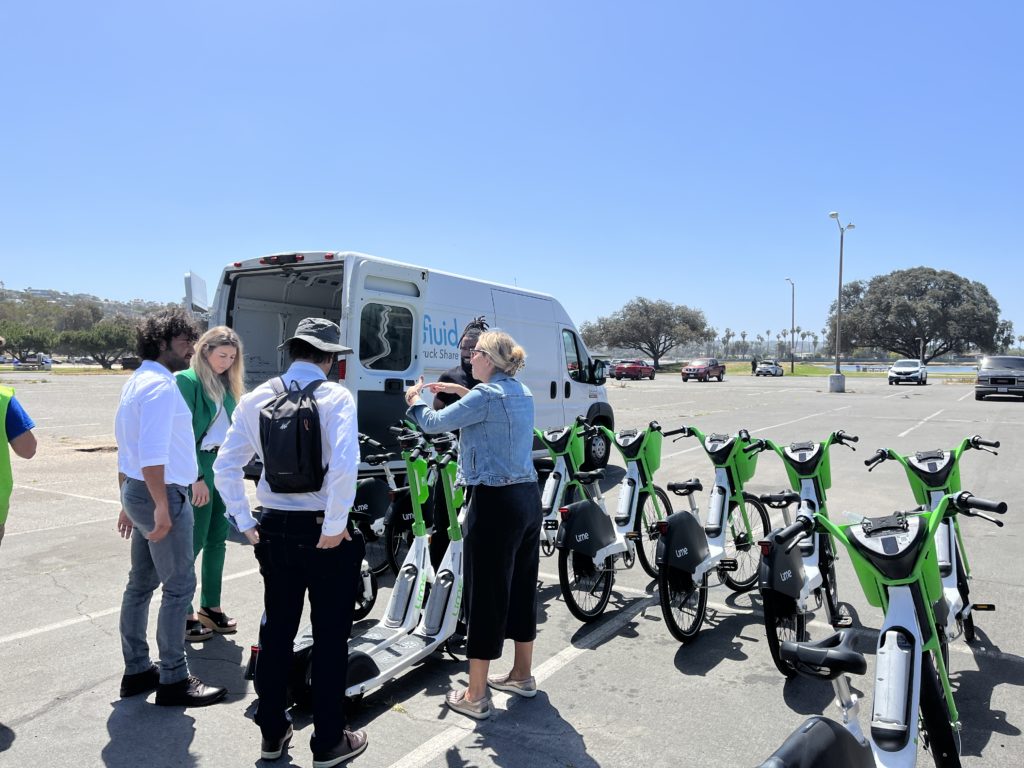
The teams were able to experience bicycle routes and how geofencing is implemented to slow the bikes in shared areas with pedestrians.
The ride ended with a visit to the Rose Creek Mission Bay Area, where representatives from Friends of Rose Creek and the San Diego Audubon Society explained the area’s history, the risks of increased flooding due to climate change, and the process of cleaning and restoring the ecosystem of the creek. Their work also expands to environmental justice, working to make the surrounding area a clean and healthy space where residents and visitors can enjoy nature, bike, and walk.
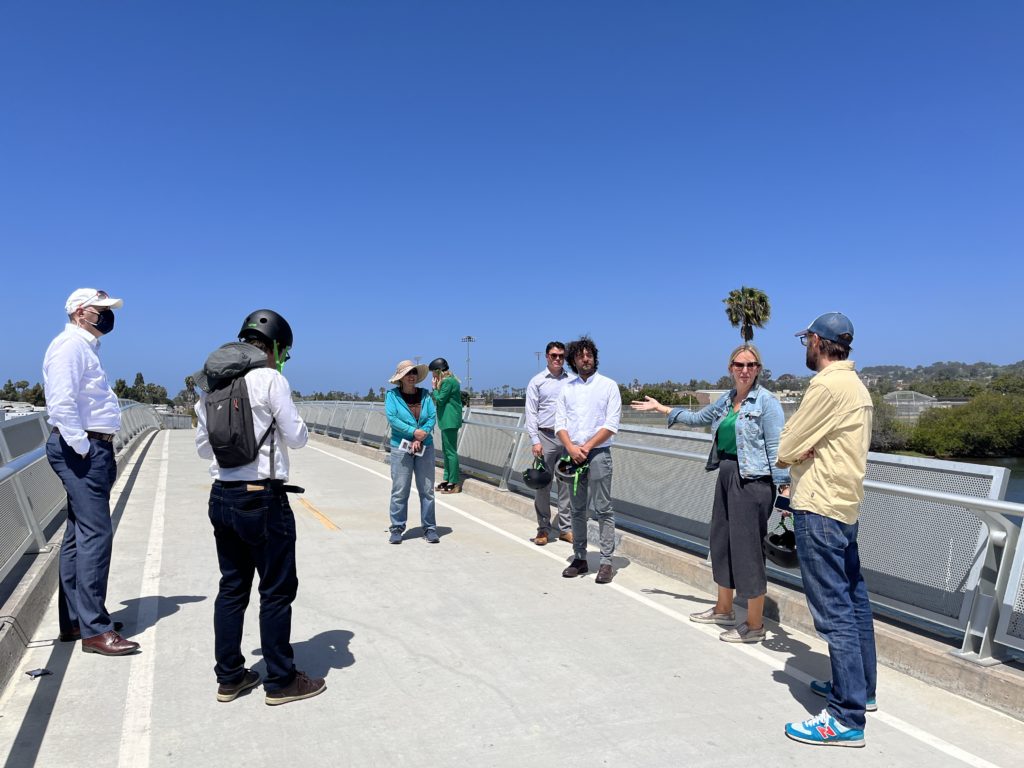
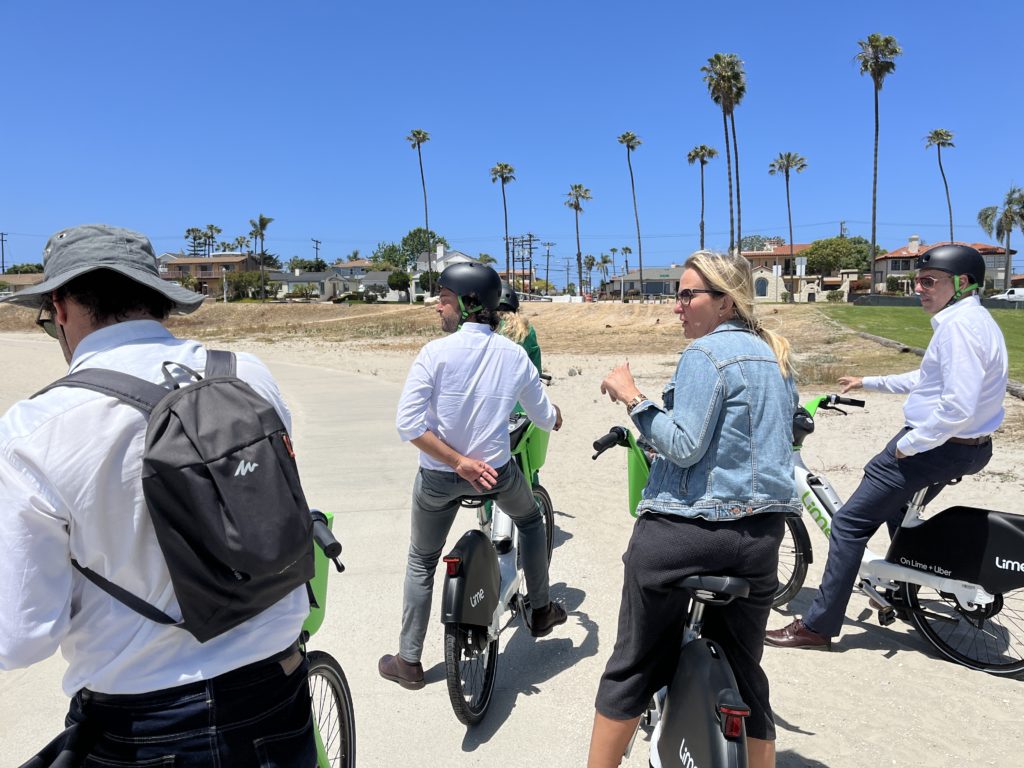
During the afternoon, the delegates traveled to the San Diego Airport, where they participated in several technical presentations addressing the energy transition in public transport and private vehicles. One of the main challenges of transforming the public fleet is adding charging infrastructure to municipal lots, which may be costly and not physically feasible. This challenge has been solved by adding transient charging umbrellas that allow the city to pilot the charging stations before investing in permanent infrastructure. The session ended with a tour of the airport facilities. Hence, visiting delegates learned about their effort to become more sustainable, from increasing EVs to planning bike paths and protecting areas to preserve endangered bird species.
On the second day of the visit, Sameera Rao, Project Manager at the Planning Department, introduced different projects around the development and maintenance of public space. For example, a strategy to use the development impact fees not just in the site where new construction takes place but to create a fund that allows the city to invest in parks where communities need them most.
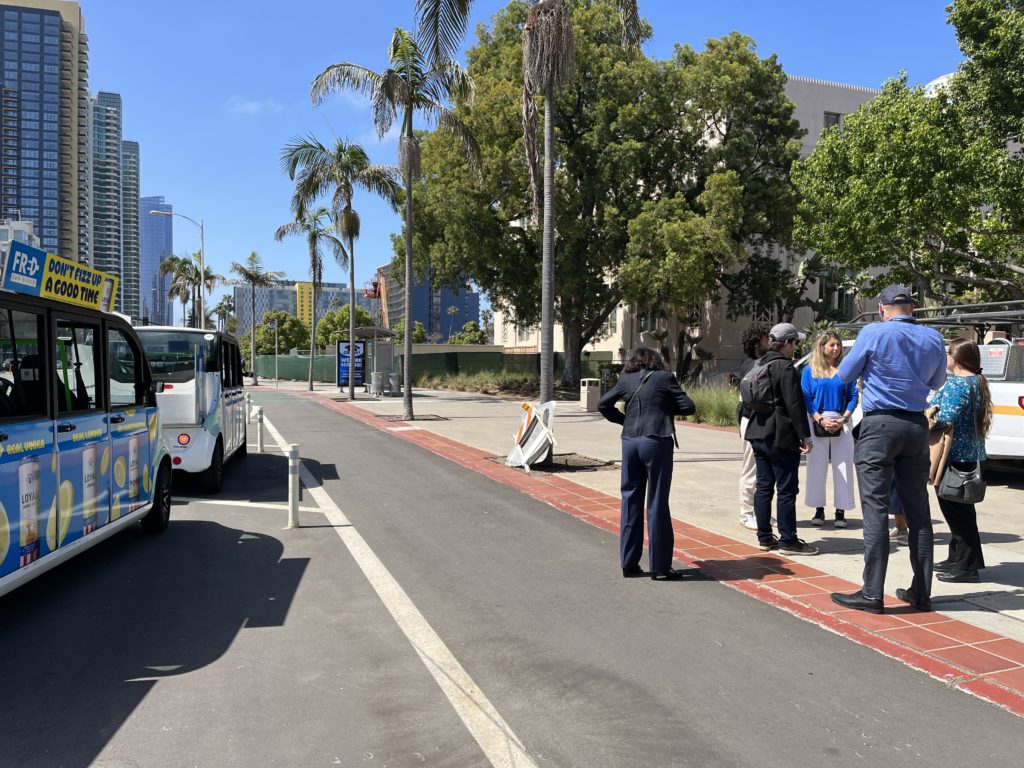
Following the technical session, delegates traveled using the electric Free Ride Everywhere Downtown (FRED) circulator shuttle for a short tour of downtown, where they observed the scooter program, including geofencing, corrals, and other forms of multi-modal transportation.
After lunch, the visitors were taken to the San Diego Association of Governments (SANDAG) Vision Lab. There, they learned about the new regional plan, which emphasizes connectivity and puts forward an ambitious infrastructure and transport system that reduces emissions and provides more opportunities for suburban communities to reach jobs and services.
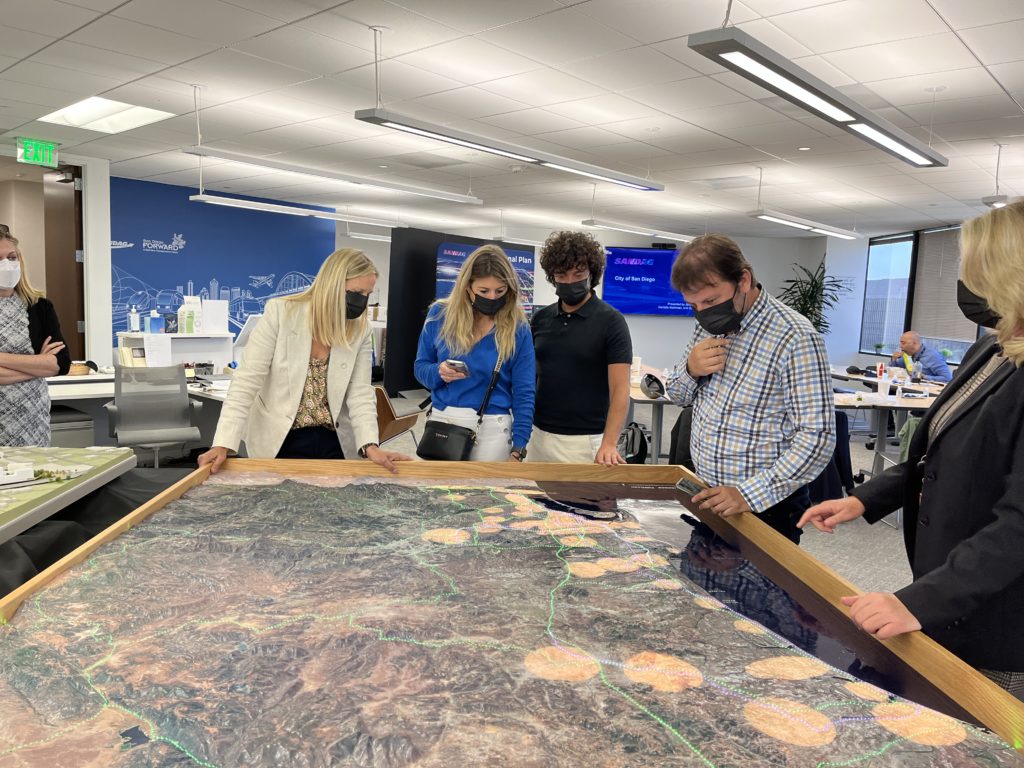
SANDAG also created a climate action data portal where visitors can review data from each city within the region.
This portal results from an effort to accelerate the transition to zero emissions, bring the region together, and pool resources to fight climate change. The day ended with a visit to the Port of San Diego, where they learned about the port’s history and effort to become more sustainable and improve health equity.
The last day of the visit started with a trolley ride to explore the San Diego River through Mission Valley. The ride focused on existing and new mobility and circulations for walking, biking, and transit. Delegates of Madrid also got an overview of plans for new developments, such as a stadium with less parking space and a bridge connecting communities to the stadium and surrounding natural areas.
The San Diego team then led the representatives of Madrid on a tour of Balboa Park, discussing plans to remove vehicle access, welcome micro-mobility options, and develop a new plaza. The study visit ended with a closing session where all participants discussed lessons learned, reflections, and plans for the study visit in Madrid during the fall of 2022.
